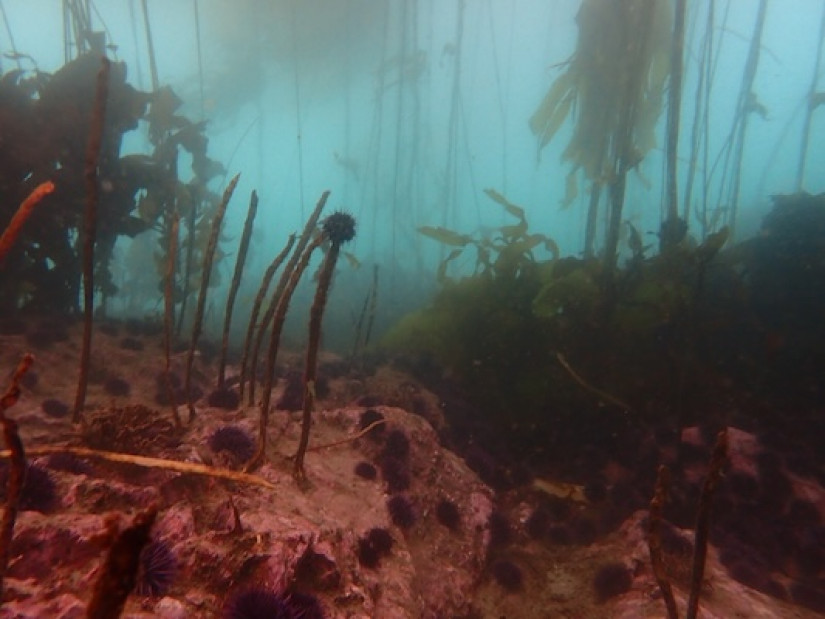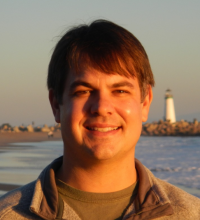
PROJECT HIGHLIGHT
This project aims to recover five acres of recently degraded bull kelp forest at Big River, Mendocino County, by deploying a strategic combination of kelp recovery solutions and providing community participation opportunities.
PROJECT SUMMARY
Over 96% of bull kelp canopy has been lost on California's North Coast and the ecosystem is showing little signs of recovering on its own. As more marine heat waves are forecast for the future, it is raising concerns that even more kelp might be lost. To date, kelp recovery projects have purposefully focused on testing individual techniques in isolation (one at a time or small scale). They have yet to combine best practices to demonstrate how an integrated, science-based and adaptive approach may accelerate and scale restoration. This Nature Conservancy-led collaborative initiative aims to restore five acres of recently degraded reef at Big River by using a strategic sequence of interdisciplinary recovery techniques, bringing together thinkers from twelve organizations in a coordinated effort to truly scale and accelerate kelp recovery.
The project suppresses herbivore grazing through targeted removal of sea urchins by commercial urchin divers as well as urchin traps, while supplementing drift kelp to shift urchin behavior. Fifteen commercial divers have harvested 54,870 pounds of purple sea urchins from Big River and Albion Cove, achieving a 172% increase in kelp canopy coverage since Fall 2023. Kelp growth is being stimulated through spore bags and outplanting lab-cultured juvenile kelp on novel ARKEV (Array to Recover Kelp Ecosystem Vegetation) underwater units, which have helped bull kelp grow to reproductive maturity within two months.
The project also investigates how the urchin fishery can be adapted to support kelp restoration through better diver economic outcomes and new market uses for purple urchins. Researchers have developed a pathway with California's Department of Fish and Wildlife to market harvested urchins, creating revenue streams for ongoing restoration, while advancing prototypes of an urchin-based marble engineered stone product for the luxury design market.
To increase the likelihood of sustained stewardship and kelp recovery success, this project provides training and internships for local divers to build workforce capacity and engage previously underrepresented groups. Community engagement has reached over 1,500 people through the month-long KelpFest! and over 144,000 viewers through media appearances, while providing professional experience for nineteen students and earning a United Nations Decade of Change endorsement for the project's educational website.
Media coverage
KZYX / Nature Conservancy Leads Effort to Restore Kelp Forests at Big River and Albion
The Mendocino Beacon / Bull kelp restoration efforts at Big River and Albion showing promise
Oregon Live / Does kelp restoration work?
Civil Eats / Rescuing Kelp Through Science
Mongabay / The world’s kelp needs help — less than 2% is highly protected
PBS Terra / How Otters Are Saving Earth’s Underwater Forests
 Brent Hughes
Brent Hughes